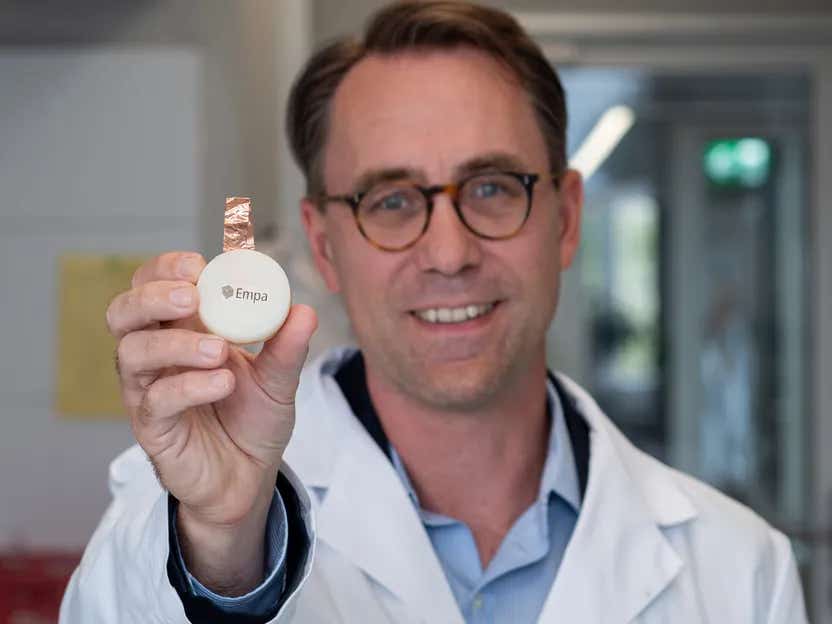Small, lightweight, gas sensors can monitor air pollution through e-skins
Scientists develop novel gas sensors with improved detection sensitivity and durability by combining organic and inorganic materials

[August 23, 2021: Incheon National University]
In a new study, researchers from Korea have devised a high-performance and durable gas sensor using a combination of an organic polymer and inorganic gas sensing material. (Credit: Alexandr Podvalny on Pexels)
With air pollution on the rise, especially in densely populated urban areas, testing for air quality and the presence of pollutant gases, such as carbon dioxide, nitrogen dioxide (NO2), and carbon monoxide, have become more important than ever. Sensitive gas sensing and monitoring technologies are, therefore, a pressing need.
Of much recent research interest in this field are the novel organic field-effect transistor-based (OFET) sensors, which are highly sensitive, flexible, and lightweight, opening doors to portable gas sensors even on e-skins. However, OFETs are unstable, and therefore not durable, at room temperature. This limits their applicability and makes them inferior to existing inorganic sensors, which nonetheless, do not possess any of the flexibility and light weight of organic sensors.
Bridging the organic–inorganic gap, scientists from Incheon National University, Korea, led by Prof. Yeong Don Park, have created hybrid OFETs using a organic conjugated polymer and variations of an inorganic nanoporous material, zeolite. Their study was made available online on 6 April 2021 and will be published in Volume 420 Part 1 of Chemical Engineering Journal on 15 September 2021.
“The high degree of porosity in zeolite results in an exceptionally high specific surface area and, in turn, a strong adsorption response for small gas molecules. This also helps it adsorb the molecules in air that oxidize (react with) the gas sensor to destabilize it and reduce its durability.” explains Prof. Park. Their material boasts not only high durability, but also high sensitivity.
The team fabricated two OFET-based NO2 sensors using a combination of the conjugated polymer, poly(3-hexylthiophene) (P3HT) and one of two zeolite materials, PST-11 or Omega. They examined the sensing performances of both OFETs when exposed to NO2 gas. The hybridization provided the polymer with an orderly structure which in turn led to efficient interactions with the gas molecules and, consequently, high sensitivity. Among the two, the scientists observed that the PST-11–P3HT film was more sensitive to NO2 than the Omega–P3HT film due to a larger specific surface area.
Overall, Prof. Park explains: “Our approach represents a new way of conceptualizing the design and development of sensors. If our research is refined further, people can easily detect harmful gases in real time.” Speaking of his vision, he says: “Our devices can be integrated with wearable devices such as smart watches and e-skins to allow people to know about air pollution levels in areas other than industrial sites.”
While a pollution-free world is our end goal, it certainly wouldn’t hurt to stay safe while we get there.
For more environmental news stories check out our Green Impact section at The Brighter Side of News.
Like these kind of feel good stories? Get the Brighter Side of News' newsletter.
Tags: #New_Innovations, #Green_Good_News, #Pollution, #Sensors, #Smartwatch, #e_skin, #The_Brighter_Side_of_News
Joshua Shavit
Science & Technology Writer | AI and Robotics Reporter
Joshua Shavit is a Los Angeles-based science and technology writer with a passion for exploring the breakthroughs shaping the future. As a contributor to The Brighter Side of News, he focuses on positive and transformative advancements in AI, technology, physics, engineering, robotics and space science. Joshua is currently working towards a Bachelor of Science in Business Administration at the University of California, Berkeley. He combines his academic background with a talent for storytelling, making complex scientific discoveries engaging and accessible. His work highlights the innovators behind the ideas, bringing readers closer to the people driving progress.



